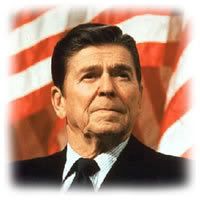Post by MARIO on Aug 23, 2005 8:21:06 GMT -8
An oil 'crisis'?
Thomas Sowell
August 23, 2005
With oil prices passing the record-breaking $60 a barrel level and heading even higher, the word "crisis" is now being used and all sorts of political "solutions" are being proposed. Is there really a crisis?
One of the dictionary definitions of a crisis is "the point in the course of a serious disease at which a decisive change occurs, leading either to recovery or to death." Is that where we are when it comes to oil? Are we either going to solve the problem of oil or see it destroy us economically?
Political and media definitions of "crisis" are much looser than the dictionary's definition. In political semantics, the word "crisis" has come to mean any situation that someone wants to use to justify doing something that will be called a "solution." Crises are a dime a dozen by political and media definitions.
Almost as common as crises are conspiracy theories. Whenever the price of gasoline shoots up, California's Senator Barbara Boxer can be depended on to demand an investigation of the oil companies. The fact that previous investigations have found no conspiracies is no deterrent.
Why, then, are oil prices so high?
There is no esoteric reason. It is plain old supply and demand. With the economies of huge nations like China and India developing more rapidly, now that they have freed their markets from many stifling government controls, more oil is being demanded in the world market and there are few new sources of supply.
What should our government do?
We will be lucky if they do nothing. But, with Congressional elections coming up next year, that is very unlikely. Candidates for Congress next year, and politicians hoping to run for President in 2008, are virtually guaranteed to come up with all sorts of "solutions."
These "solutions" will be packaged as brilliant new ideas, courageous and far-seeing. But most will be retreads of old ideas that remain untested or which have been tested in the past and found wanting.
Price controls, arbitrary new higher gas mileage standards for cars, "alternative energy sources," and other nostrums are sure to surface once again.
The last time we had price controls on gasoline, we had long lines of cars at filling stations, these lines sometimes stretching around the block, with motorists sitting in those lines for hours.
That nonsense ended almost overnight when President Ronald Reagan, ignoring the cries of liberal politicians and the liberal media, got rid of price controls with a stroke of the pen.
READ THE REST:
www.townhall.com/columnists/thomassowell/printts20050823.shtml
Thomas Sowell
August 23, 2005
With oil prices passing the record-breaking $60 a barrel level and heading even higher, the word "crisis" is now being used and all sorts of political "solutions" are being proposed. Is there really a crisis?
One of the dictionary definitions of a crisis is "the point in the course of a serious disease at which a decisive change occurs, leading either to recovery or to death." Is that where we are when it comes to oil? Are we either going to solve the problem of oil or see it destroy us economically?
Political and media definitions of "crisis" are much looser than the dictionary's definition. In political semantics, the word "crisis" has come to mean any situation that someone wants to use to justify doing something that will be called a "solution." Crises are a dime a dozen by political and media definitions.
Almost as common as crises are conspiracy theories. Whenever the price of gasoline shoots up, California's Senator Barbara Boxer can be depended on to demand an investigation of the oil companies. The fact that previous investigations have found no conspiracies is no deterrent.
Why, then, are oil prices so high?
There is no esoteric reason. It is plain old supply and demand. With the economies of huge nations like China and India developing more rapidly, now that they have freed their markets from many stifling government controls, more oil is being demanded in the world market and there are few new sources of supply.
What should our government do?
We will be lucky if they do nothing. But, with Congressional elections coming up next year, that is very unlikely. Candidates for Congress next year, and politicians hoping to run for President in 2008, are virtually guaranteed to come up with all sorts of "solutions."
These "solutions" will be packaged as brilliant new ideas, courageous and far-seeing. But most will be retreads of old ideas that remain untested or which have been tested in the past and found wanting.
Price controls, arbitrary new higher gas mileage standards for cars, "alternative energy sources," and other nostrums are sure to surface once again.
The last time we had price controls on gasoline, we had long lines of cars at filling stations, these lines sometimes stretching around the block, with motorists sitting in those lines for hours.
That nonsense ended almost overnight when President Ronald Reagan, ignoring the cries of liberal politicians and the liberal media, got rid of price controls with a stroke of the pen.
READ THE REST:
www.townhall.com/columnists/thomassowell/printts20050823.shtml




